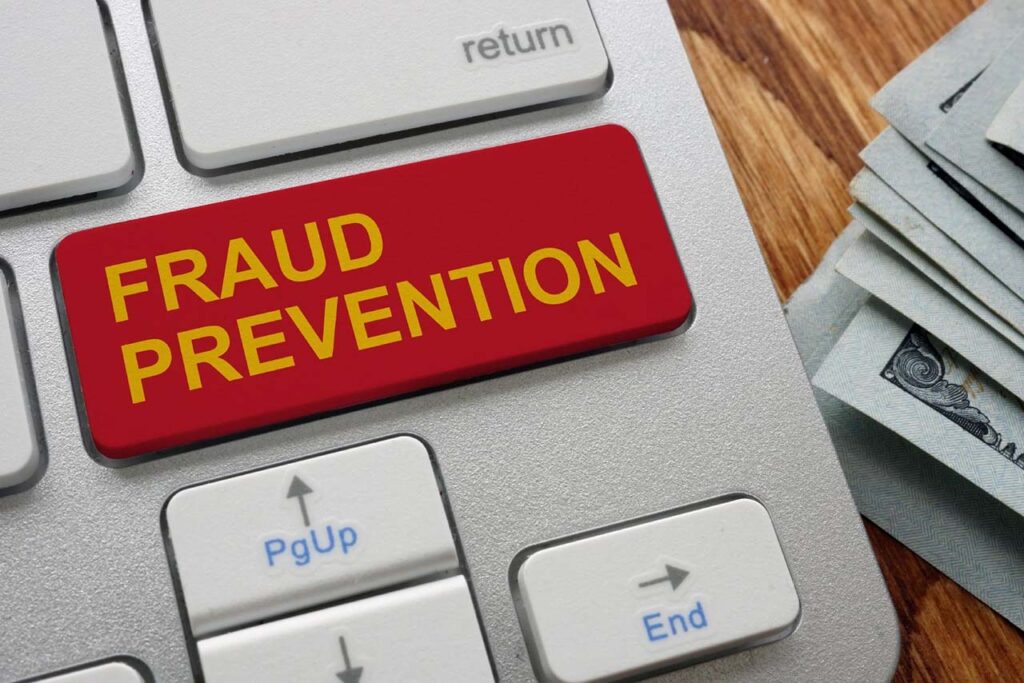
Common Red Flags of Dealer Auto Fraud When Buying a Used Car in California
Buying a used car can be exciting—but it can also be risky if you’re not aware of the common warning signs to watch out for. Unfortunately, some car dealers in California engage in deceptive practices to hide problems like branded titles, hidden damage, or misleading histories. Knowing the warning signs—such as a dealer refusing to show the title or rushing you into signing paperwork—can save you from costly mistakes and legal headaches.
In this guide, we break down the most common red flags of dealer fraud, explain your legal protections under California law, and show you exactly what to do if you suspect you’ve been taken advantage of. Whether you’re shopping for your next car or trying to recover from a bad deal, this information can help you spot the scams and fight back with confidence.
#1 The Dealer Refuses to Provide the Vehicle Title or History Report
One of the most common signs of dealer fraud in California is a refusal to share the vehicle’s title or a complete history report. When you ask to see the title, the dealer might say, “We’ll get that for you after the paperwork,” or “It’s being processed.” Don’t fall for it.
In California, a dealer is legally required to provide the title and any known history before the sale. Titles that are branded—marked as salvage, lemon law buyback, or flood-damaged—must be disclosed. If a dealer won’t show you the title up front, it’s often because the car has something to hide.
Consider a Reddit complaint: “Dealership told me car had a clean title but once I got paperwork back from the DMV, it was a salvaged title”. (Reddit.com, 2022). The dealer said they didn’t know. How could they not know?
Tip: Always request the title and a vehicle history report (Carfax, NMVTIS, or AutoCheck) before signing anything.
#2 You’re Rushed Into Signing Without Time To Review Disclosures
Some dealers use pressure tactics to get you to sign paperwork without giving you time to read. “This deal won’t last,” they might say, or “Another buyer is waiting.” But California law requires that all material disclosures—such as branded titles, prior accidents, and mechanical issues—must be provided in writing before the sale.
A consumer complaint on Reddit highlights this red flag: “Car fax report claimed it had no accidents and so did the dealership. A few days later noticed there appeared to a panel slightly misplaced. We took it to an auto body who said it has 100% been in an accident, the bumper had been entirely replaced, poorly done at that” (Reddit.com, 2024).
Verbal statements are meaningless if they’re not backed up in writing. If you’re being rushed to sign, ask for a copy of all disclosures and take the time to read them.
Tip: Never sign under pressure. If the deal is legitimate, it will still be there tomorrow.
#3 The Price Is Far Below Market Value
While everyone loves a deal, if a car is priced thousands below market value, it’s likely too good to be true. Dealers use this tactic to offload vehicles with serious issues—often without telling you.
Take “West”, who thought they found a good deal online when they saw a car listed below average. After purchase, they started to notice damage such as rust under the seats, warping and odor. Then, taking the car to a local mechanic, he learned it had been declared a total loss due to undisclosed flood damage. The dealer had cleaned it up and rebranded it. (Avvo.com, 2021).
This practice, known as title washing, is illegal and dangerous. Flood-damaged cars often have ongoing electrical issues, mold, and hidden corrosion.
Tip: Always compare prices on Kelley Blue Book and Edmunds. If the car is underpriced, find out why.
#4 The Paperwork Doesn’t Match What You Were Told
Another red flag is when the sales contract or warranty documents contradict what the dealer promised verbally. You might be told the car has a warranty, but the contract says “as is.” Or they may say it has a clean history, but the VIN search shows multiple past accidents.
These bait-and-switch tactics are not just dishonest—they’re illegal. California’s Consumer Legal Remedies Act and The Vehicle Code prohibit misrepresentation in advertising and sales.
A California buyer’s Reddit complaint titled “Texas dealer told us warranty would cover any issues” illustrates this problem: The buyer was verbally assured by the dealer that the vehicle came with a 100-day warranty covering any engine issues. However, when the car’s engine failed a few months later, the warranty provider denied coverage. Further investigation revealed the dealer submitted warranty documents that were different than the ones provided to the buyer. The buyer was left with costly repairs, warranty disputes, and a dealership unwilling to honor their promises (Reddit.com, 2020).
Tip: If the contract doesn’t match the verbal promises, don’t sign. Insist on corrections before purchase.
#5 Signs of Hidden Damage or Unreported Repairs
Fraudulent dealers often sell cars that look good on the outside but have deep, hidden issues underneath. Watch out for:
- Mismatched paint (indicating panel replacements)
- Non-functioning airbags
- Check engine lights mysteriously disabled
- New parts in one area of the vehicle only
California law requires dealers to disclose known material facts. Selling a damaged car as clean is fraud.
Tip: Hire an independent mechanic to inspect the car before purchase.
#6 Additional Warning: Unlicensed Dealerships Operating Illegally
Not all vehicle sellers are properly licensed by the California DMV. Some operate as curbstoners—individuals or businesses selling cars illegally without disclosing their dealership status. These sellers often skip inspections, misrepresent mileage, and avoid responsibility when things go wrong.
A report from the City of San Diego warns consumers about ‘curbstones’ operating across California, posing a serious risk to consumers (SanDiego.gov, 2012). They may advertise on social media, online marketplaces, or place handwritten signs on vehicles parked on the street
Tip: Always verify that the seller is a licensed dealer. Use the DMV’s occupational license lookup before doing business.
How California Law Protects Used Car Buyers
California has some of the strongest auto fraud protections in the country. State laws require:
- Dealers to disclose all known material defects
- Written notices for branded title vehicles
- Honest advertising and truthful odometer disclosures
Violations of these laws can lead to civil penalties, rescission of contracts, and damages.
Key statutes include:
- Vehicle Code – Governs dealer honesty and required disclosures
- Consumer Legal Remedies Act – Gives consumers the right to sue for deceptive practices
- Business and Professions Code – Protects against unfair competition and fraud
Tip: If you think your rights were violated, talk to an auto fraud attorney immediately.
What to Do If You’ve Been a Victim of Dealer Fraud
If you’ve discovered after purchase that your car has hidden damage, a branded title, or doesn’t match what was promised, here’s what to do:
- Document Everything – Save all emails, texts, contracts, and receipts.
- Get a Mechanic’s Report – A professional inspection can help identify undisclosed issues.
- Request Your Title – Check if it’s branded or altered.
- Report the Dealer – File a complaint with the California DMV and BBB.
- Consult a Lawyer – A qualified auto fraud attorney can guide you through filing a legal claim.
Tip: Don’t delay—fraud cases have time limits. Contact a legal professional as soon as possible.
We Help Consumers Uncover Dealer Fraud—and Fight Back
At our firm, we help Californians who were misled by dishonest car dealerships. We investigate title history, review documents, and pursue legal action to recover money lost to fraud.
If you were sold a car with a branded title, undisclosed damage, or false advertising, you have rights under California law. We’ve helped clients cancel contracts, recover full refunds, and secure compensation for repairs, lost value, and legal fees.
Don’t let a dealership get away with deception. Contact our office at 800-219-3577 for a free case review.

Final Checklist: How to Spot Dealer Fraud Before You Buy
Before buying a used car in California:
- Ask for the title and history report (Carfax or NMVTIS)
- Look for “branded title” labels (salvage, lemon, etc.)
- Compare the price to Kelley Blue Book
- Take time to review disclosures and the sales contract
- Bring in a mechanic for an independent inspection
If a dealer pushes back on any of these, walk away.
You deserve honesty and transparency when buying a car. If you didn’t get it, we’re here to help.
Conclusion: Stay Smart, Stay Protected
Buying a used car in California doesn’t have to be a gamble. By watching for the red flags of auto dealer fraud—like hidden histories, suspicious pricing, and rushed paperwork—you can make informed decisions and avoid costly mistakes.
If you already purchased a vehicle and suspect you’ve been deceived, don’t wait. Call us today at 800-219-3577. Our firm helps California consumers get justice and expose dealer fraud.
Whether it’s a hidden branded title, bait-and-switch tactics, or outright lies, we’ll help you hold the dealer accountable.
Get a free case review today and find out how we can help you fight back.
Latest Posts
Common Red Flags of Dealer Auto Fraud When Buying a Used Car in California
Buying a used car can be exciting—but it can also be risky if you’re not aware of the common warning signs to watch out for. Unfortunately, some car...
California Dealers Selling Branded Title Vehicles Without Telling You? Here’s What You Must Know
"They Never Told Me the Car Had a Branded Title" A California consumer thought she had found the perfect used SUV at a dealership in Bakersfield. It was...
